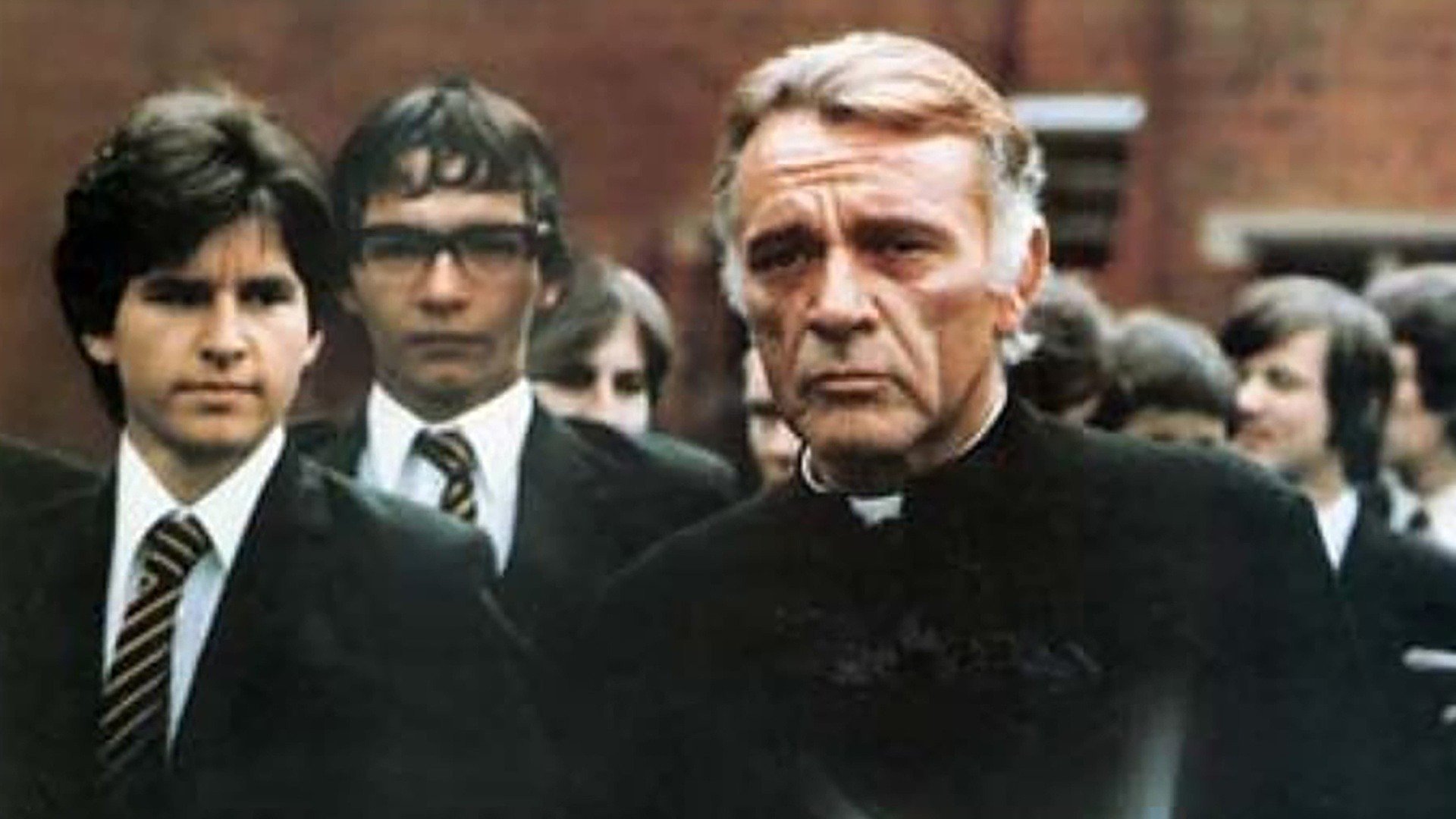
Absolution (1978)
“Your tricks and insolence won’t send me mad, if that’s what you’re after!”
There’s probably a fair proportion of the world for whom England is seen as a place where we send all our kids off to Hogwarts-style boarding schools, where they spend their days playing cricket, reading poetry and rehearsing non-gender-specific comic operas.
Of course, that’s not the case – and never was, however much JK Rowling might want you to think otherwise. But the boys do exactly that in Absolution, and at their school they’re also presided over by angry sexless men wearing dresses.
(Side note: That’s the first and only time I’ll be mentioning JK Rowling and men in dresses in the same paragraph during this review. Or, in fact, on this website. There’s only so much protection the ‘light hearted piss-take of old films’ caveat can give a person)
Anyway, speaking of people with Scottish connections who have strong opinions about stuff, here comes Blakey (Billy Connolly)! The Big Yin’s after a job at the school, but because he is a Scot and therefore knows nothing about cricket, non-Burns-related poetry or comic opera (probably), he’s given the bum’s rush by head man in a dress, Father Goddard (Richard Burton).
Goddard is well named, because he’s a man of God and he’s well ‘ard, ruling the school with a rod of iron. No football on the telly for these boys, but plenty of fruity poetry readings about the loss of youth.
Rebuffed, but clearly anticipating Norman Tebbitt’s exhortations of the jobless to get on their bikes and look for work in 10 years time, Blakey gets on his bike and guns it to the neighbouring wood, where he sets up camp. As the redoubtable Scot unpacks his tent and banjo, back at the school we’re discovering that Father Goddard has an interesting take on Christian values. He really likes sporty, good-looking student Stanfield (Dominic Guard), but has little time for hard-working but wimpy Dyson (David Bradley).
The class goes on a cross-country run and as they jog through the woods, chance across Blakey, strumming his banjo (not a euphemism). Stanfield is the only one who stops and talks to the itinerant, who clearly doesn’t have much time for his classmates (“five minutes out of their nappies and they’re talking like high court judges”) or their teachers (“black buzzards”).
Fired up by Blakey’s class war rhetoric and the discovery that what goes on confession stays on confession, Stanfield starts to rebel. He shows Dyson what he’d like to do to the fathers, by demonstrating on a dead fish, he gets drunk and declares his intention to marry a gipsy girl and seal their vows by pissing in a bucket (is that actually… never mind).
Burton, who has openly said he doesn’t like Dyson much but has a career in the church mapped out for Stanfield, discovers the boy’s relationship with Blakey and tries to put a stop to it.
“I have great hopes for you… don’t let me down.”
But that just makes things worse, and before you can say “that’s probably not a good idea”, Stanfield has started confessing all kinds of goings-on, secure in the knowledge (as explained to him by Blakey) that if the Father tells anyone else, he’ll be the one going straight to hell.
But Goddard has already called the police on Blakey, and in the tradition of 1970s law enforcement, they’re a tad heavy-handed (“We’re not your comrades, shithouse.”). An injured Blakey spurns Stanfield’s offers of help and the next thing we see, Stanfield is confessing to killing his trampy friend, then saying it was a joke, then saying he actually has, now.
Meanwhile a conflicted Goddard has been veering into what can only be described as “full Burton”, and it becomes clear that the goings-on are heading in a very dark direction indeed.
Absolution is another hidden gem, a Brit horror by stealth with a lot to say about class and religious hypocrisy.
Last line of my notes on this one? “Blimey”. If that doesn’t whet your whistle, I don’t know what would.
